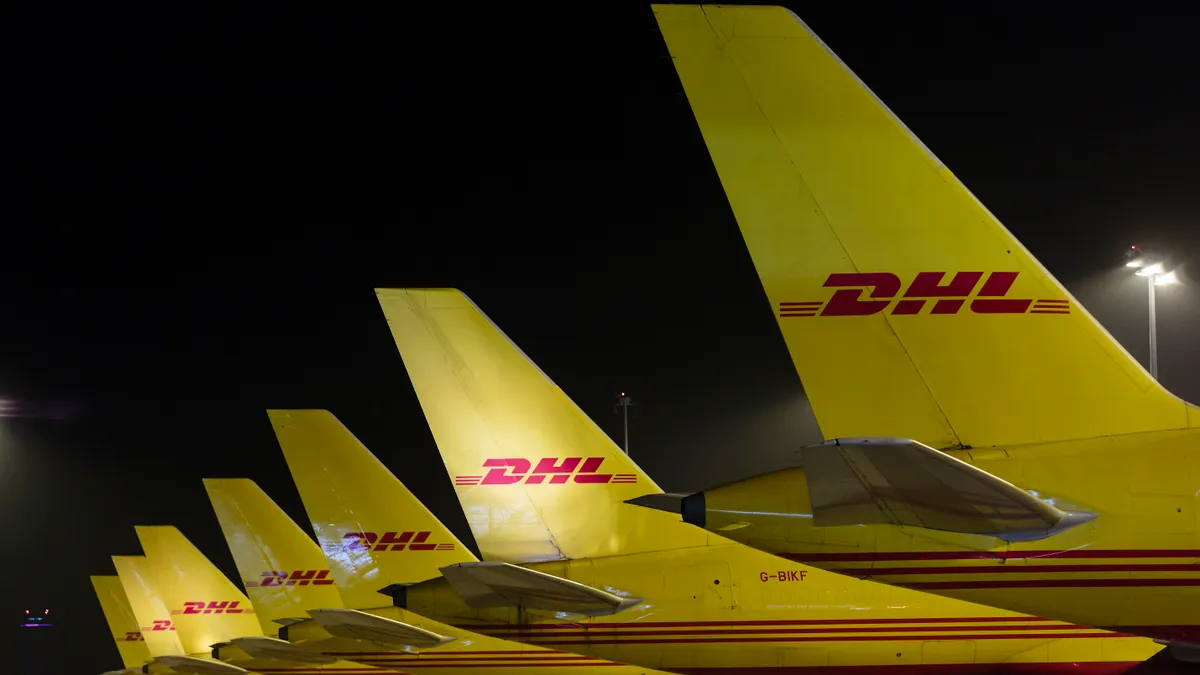DHL Express is investing 100 million euros ($111 million at the time of the announcement) to build out its air cargo and ground handling capacity ahead of the 2024 peak season, according to a Sept. 12 press release.
With DHL expecting global e-commerce sales to rise 8.8% in 2024, the company is adding capacity to accommodate cargo volumes on intercontinental lanes between the Asia-Pacific region, the Americas and Europe, according to the press release. Effective Sept. 15, DHL Express has also implemented a peak season surcharge based on a shipment’s original trade lane. Volumes exported from Asia are expected to have the highest surcharge, according to DHL Group CFO Melanie Kreis.
DHL Express’ capacity investments include the phased deployment of eight new Boeing 777 freighters on Transpacific and intercontinental routes between Asia and Europe, according to the press release.
E-commerce shipments from Asia, particularly China, are a driving force behind many peak season strategies, with goods exported from the country up 30% this year, according to a Xeneta report published earlier this month. Anticipation of a hot peak season has logistics providers looking to reevaluate their networks to combat possible capacity crunches. Forwarder Dimerco Express Group, for instance, launched a peak season charter service from Shanghai to Chicago.
Beyond adding capacity, DHL Express company has also made efforts to expand its handling and sorting capacity at several airports, including in Atlanta, per the release. The investment will enable more flexible flight schedules and the capacity to reroute cargo due to surging demand or supply chain disruption, according to the company.
“With ongoing volatility in global freight markets and a continued strong flow of e-commerce volumes, we are expecting a healthy surge in demand for express services in the fourth quarter,” DHL Express CEO John Pearson said in a statement. “We are making the necessary investments to maximize the resilience of our global network and make our customers successful during a demanding 2024 peak.”
Several logistics providers have been reevaluating their express and air cargo networks after a lull in demand following a surging 2021 market landscape. FedEx, for instance, is in the midst of integrating its Express and Ground delivery networks after ongoing efforts to right-size its fleet following a stagnant period.
However, the air cargo market has since picked up. CMA CGM Air Cargo, as an example, recently launched its first Transpacific route connecting Asia and North America in a bid to expand its U.S. network while growing its operating fleet.













